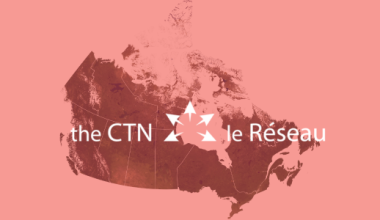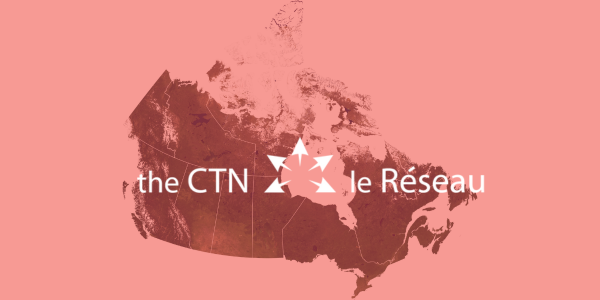
I was born and raised in Bucaramanga, Colombia, where I attended medical school. After graduating, I worked in public health research, evaluating programs for cardiovascular risk prevention and prenatal care, as well as primary care, where I taught community medicine to medical students.
Then began my journey around the world to learn more and develop my skills as a health researcher.
In 2014, I moved to Sweden to train in epidemiology and public health at the Karolinska Institute, and at the end of 2020, I moved to Toronto, Canada. While this move was initially for family reasons, it also opened the door to incredible new opportunities. I had the fortune to come across a job posting for a postdoctoral position with CTN Prevention Core Co-Lead Dr. Darrell Tan, which matched my skills. Until then, I hadn’t worked in HIV prevention, but it was an area of public health I was keen to learn more about.
Taking steps in HIV research
Working in HIV prevention has been absolutely amazing. On one hand, I have been able to apply my public health and medical knowledge and skills. On the other hand, and perhaps more importantly, it has been a big part of my personal journey.
I went from growing up in a rather sexist and homophobic society to living in Sweden, one of the most accepting and open-minded places in the world. I had the opportunity to face my own internalized homophobia, my prejudices, and my ideas around sexuality — sometimes the hard way. I remember first learning about PrEP through a gay dating app and having some negative reactions. Me?! A medical doctor with a degree in public health? Luckily, we as a society have made a lot of progress since then, but certainly not enough.
I started working on a study called the PrEP Implementation Project (PRIMP), which uses administrative data from sexual health and PrEP clinics, and a community survey, to understand how PrEP is accessed and used in British Columbia and Ontario. My analyses revealed that many people who could benefit most from an effective HIV preventive method, such as PrEP, are not accessing it. Stigma, concerns about side effects, cost, issues with risk perception, and past negative experiences with health care providers were some of the barriers behind the lack of PrEP uptake. I discussed these findings with my colleagues and we hypothesized that perhaps better counseling from health care providers could help improve access to this important preventative method.
Communication is key
It has been interesting to learn that knowledge about PrEP in British Columbia and Ontario seems very location-dependent; for example, some health care providers and patients are already very knowledgeable about PrEP in Church-Wellesley Village in downtown Toronto. However, I keep hearing stories of providers not feeling comfortable or not knowing much about how to approach counseling on HIV prevention strategies among gay, bisexual, and other men who have sex with men (gbMSM), who are thought to significantly benefit from PrEP uptake. In fairness, there are often many things to juggle when it comes to talking about HIV prevention, hence the need for a counseling guide.
In my CTN postdoctoral fellowship project, titled ‘User-centered counseling about HIV pre-exposure prophylaxis and linkage to care gbMSM,’ I will work with a panel of experts (clinicians and gbMSM) to develop a brief counselling and linkage-to-care intervention for health care providers and transform it into an online-based training program. Then I will test its acceptability and feasibility among providers and gbMSM in a small-scale trial.
Regardless of the results of my project, we will learn a lot about what is feasible, relevant, and culturally appropriate when it comes to counseling about PrEP and HIV prevention in primary care. If we see signs of positive effects, the next step would be to plan a larger scale trial and eventually develop a plan to disseminate the guidance among various groups of providers.
Looking ahead, I imagine myself building on this work and developing counseling strategies in other settings, starting with other provinces, and among other key populations.






